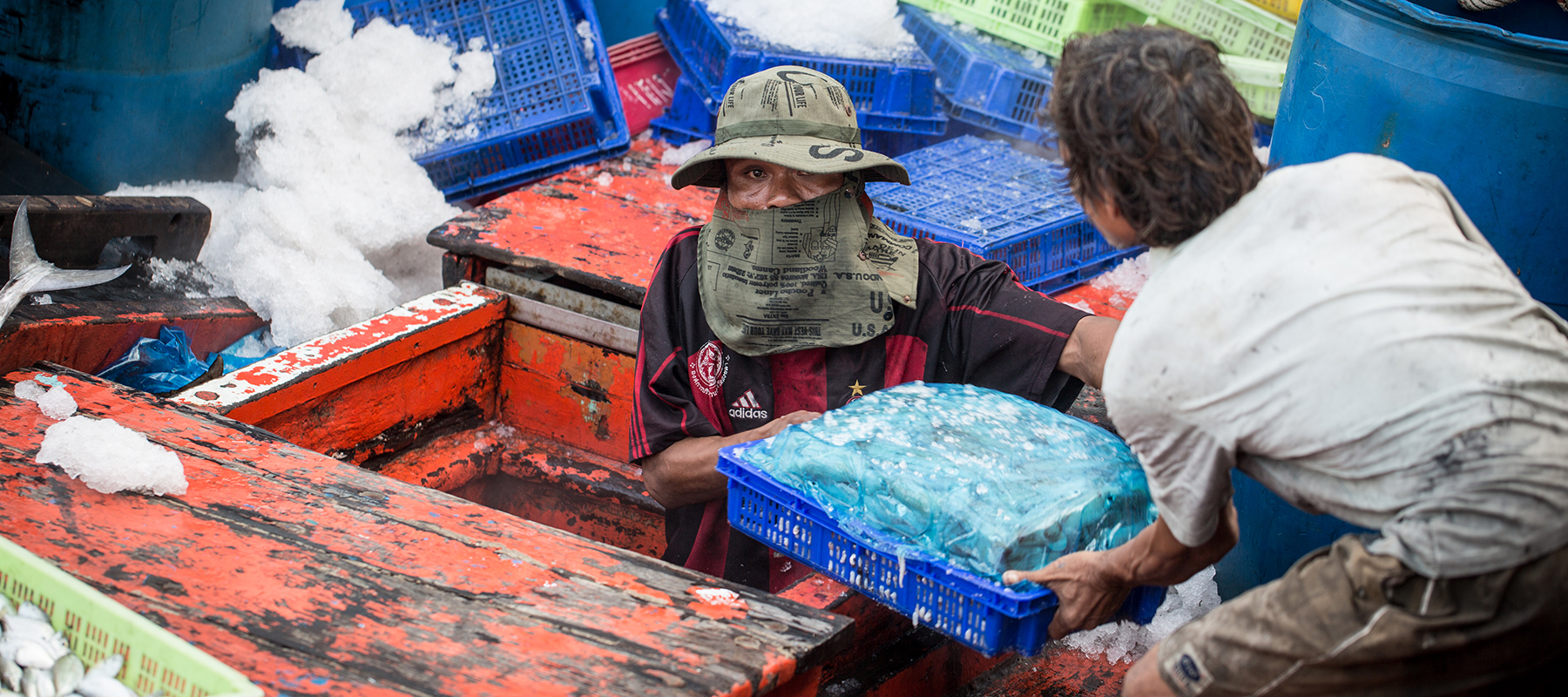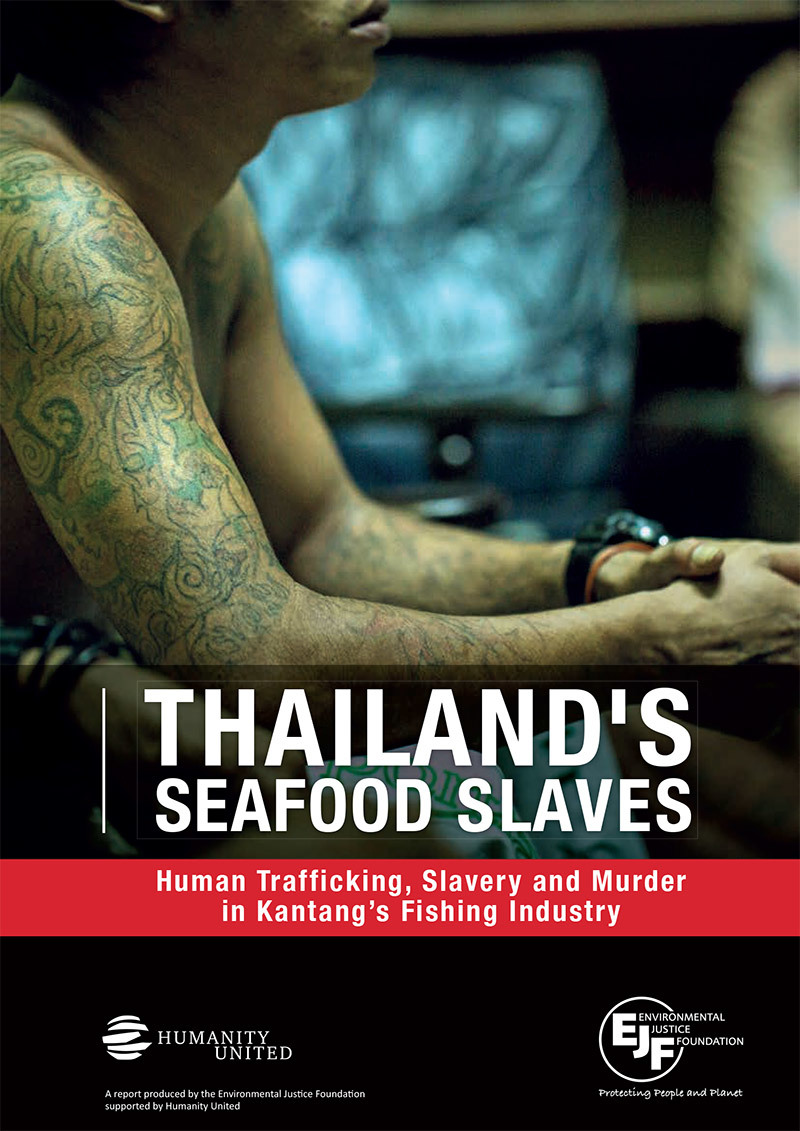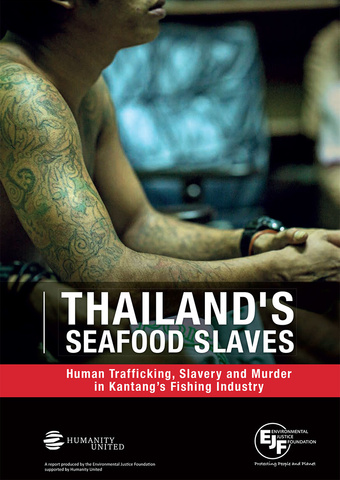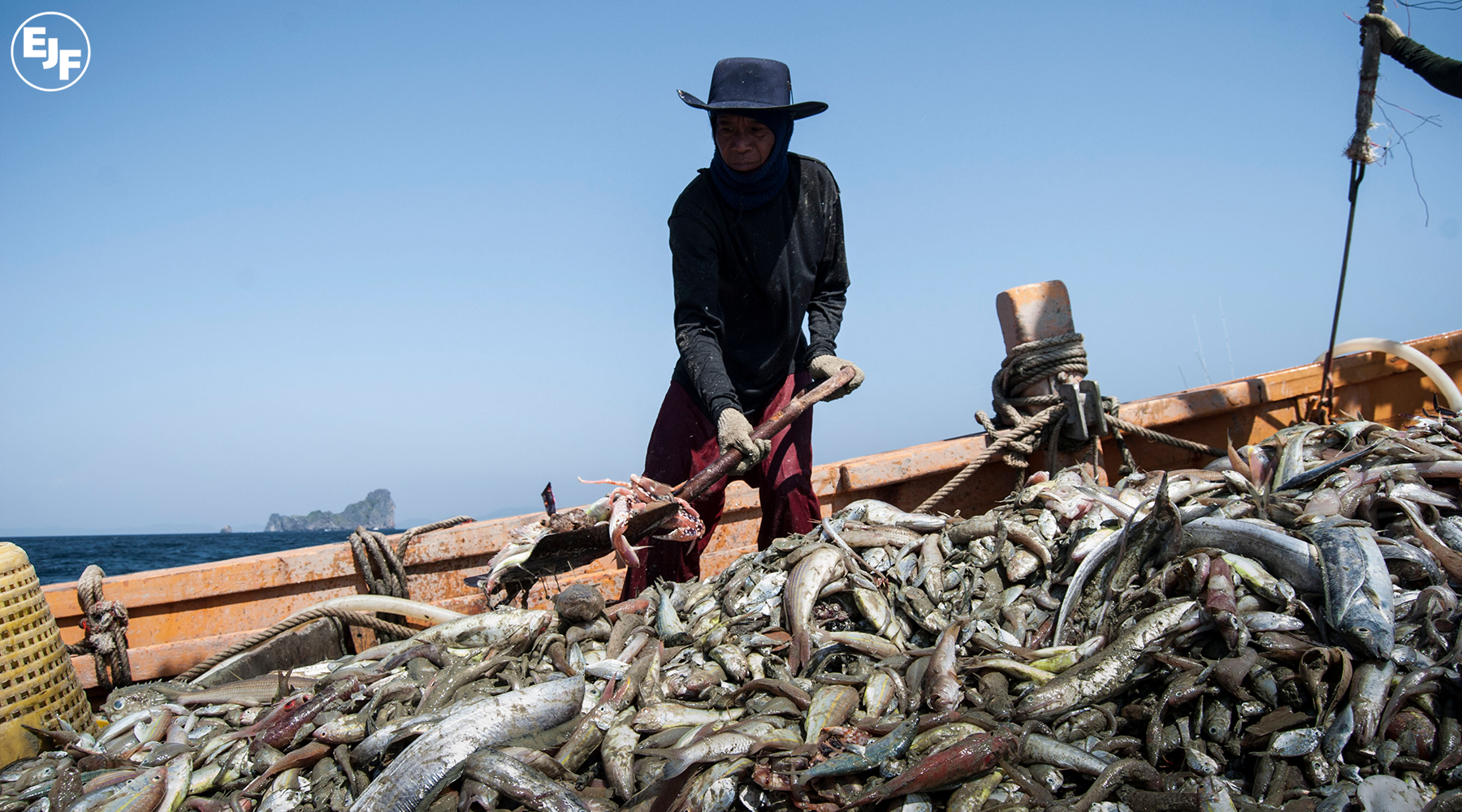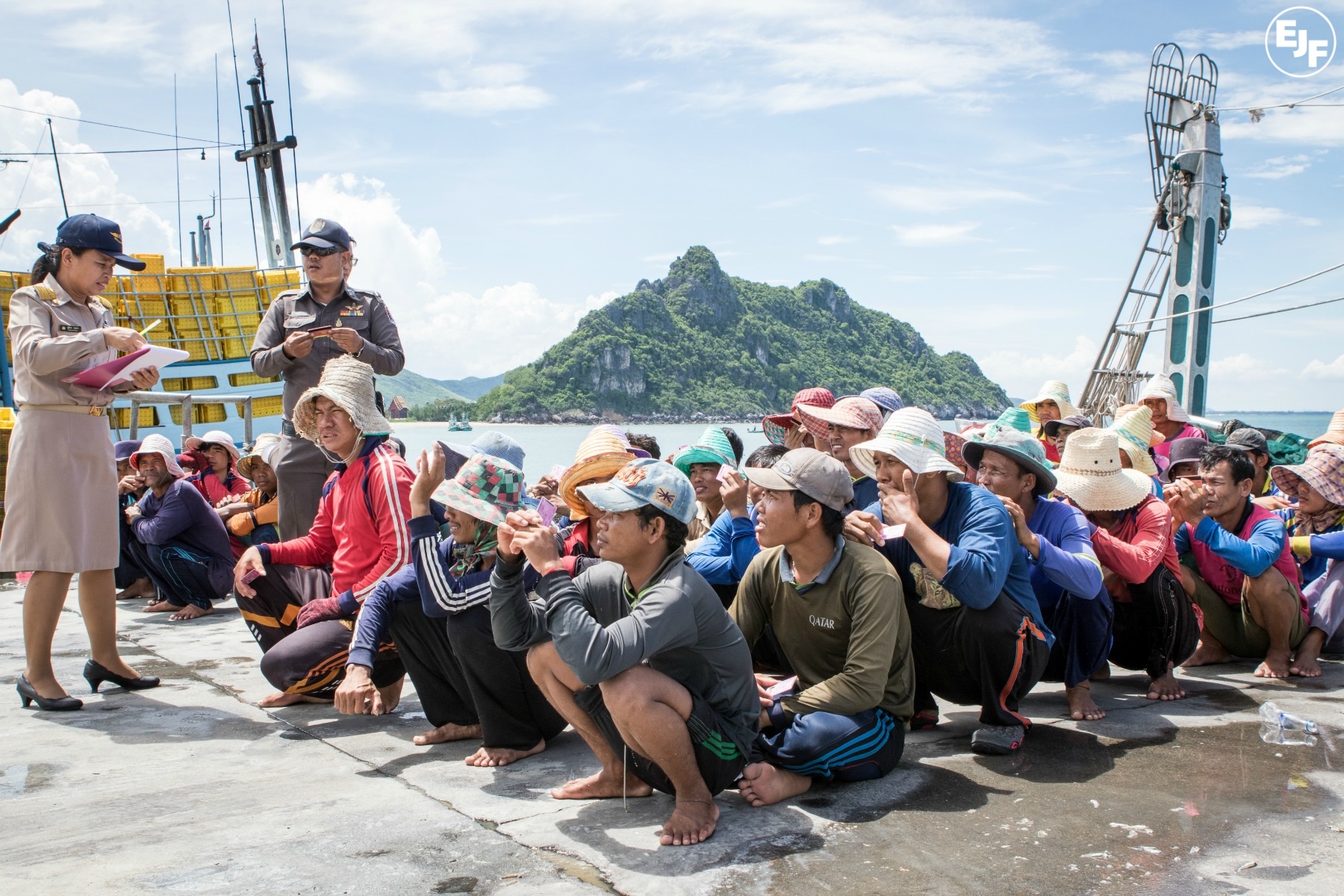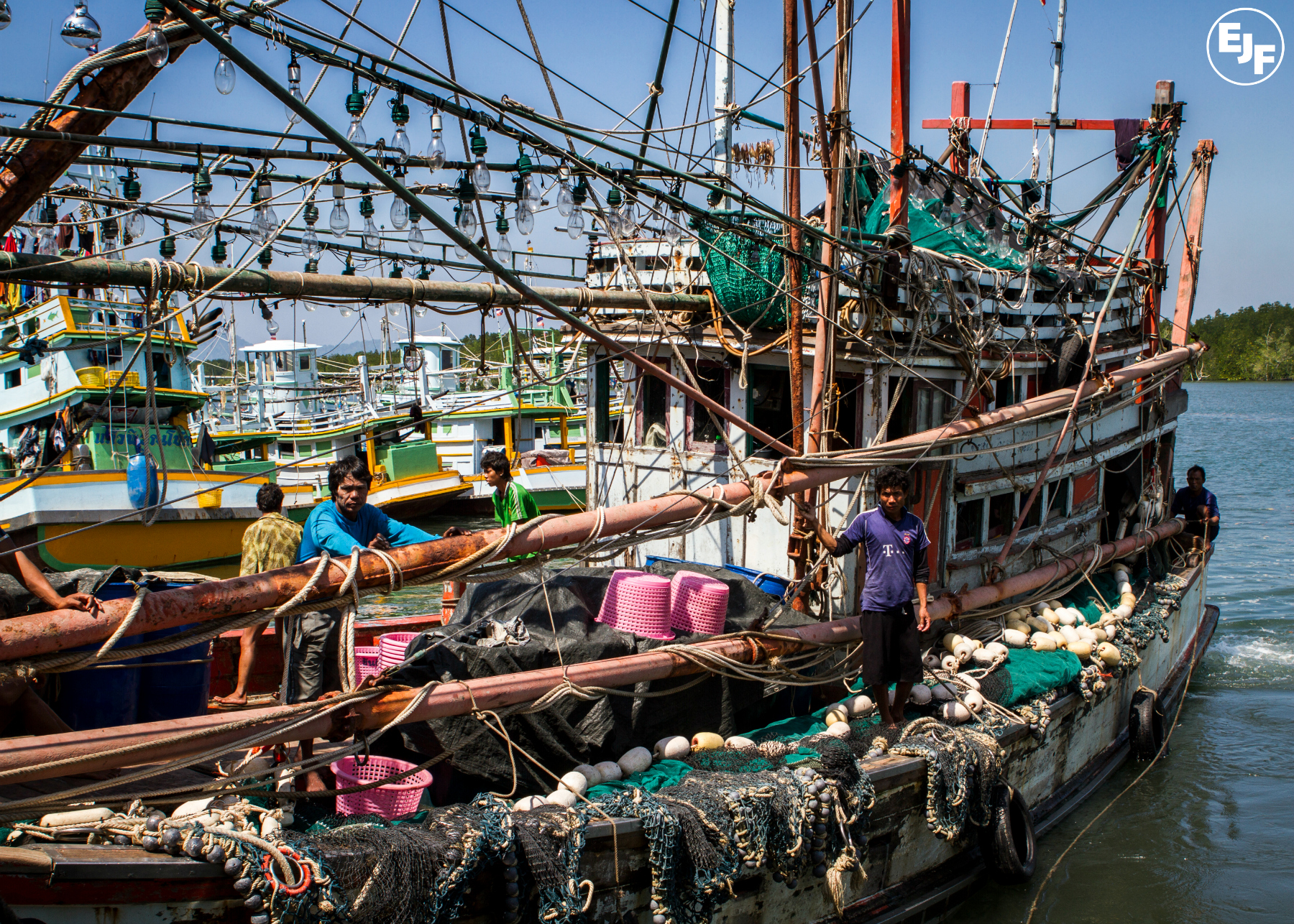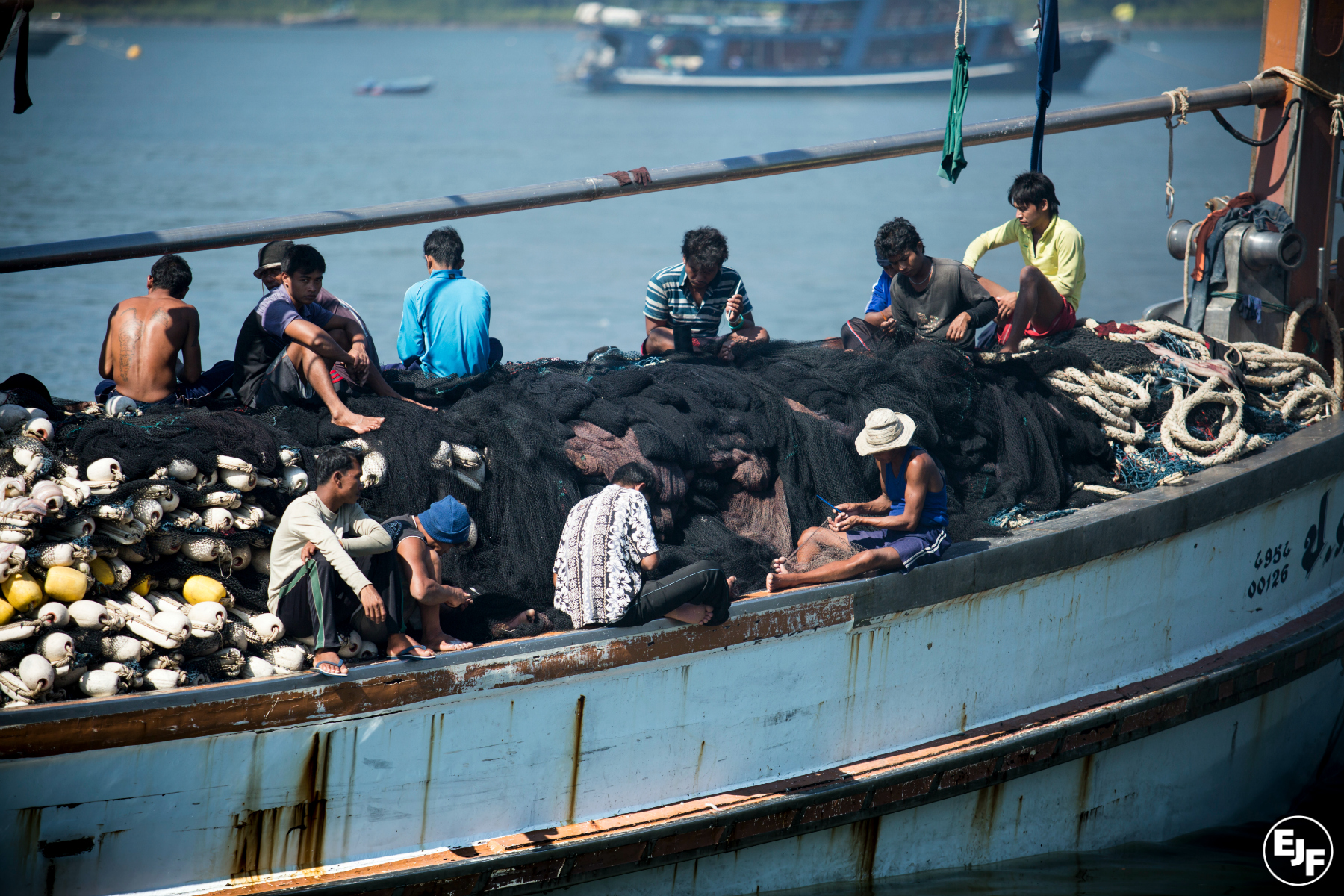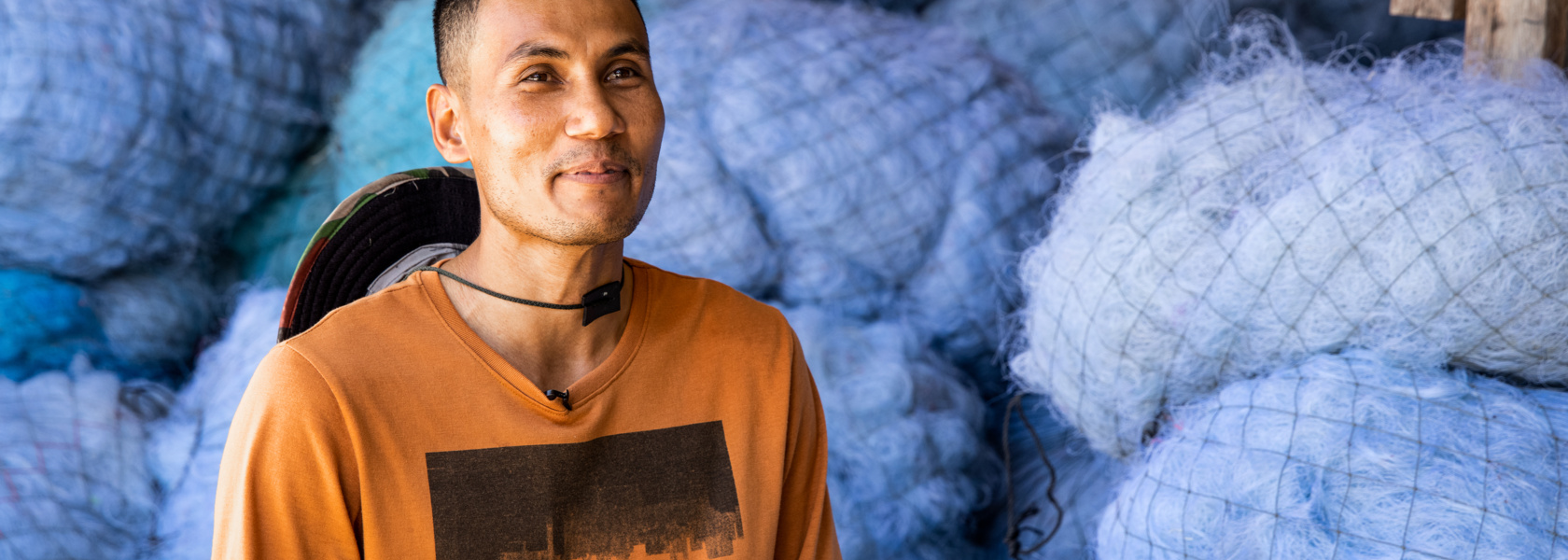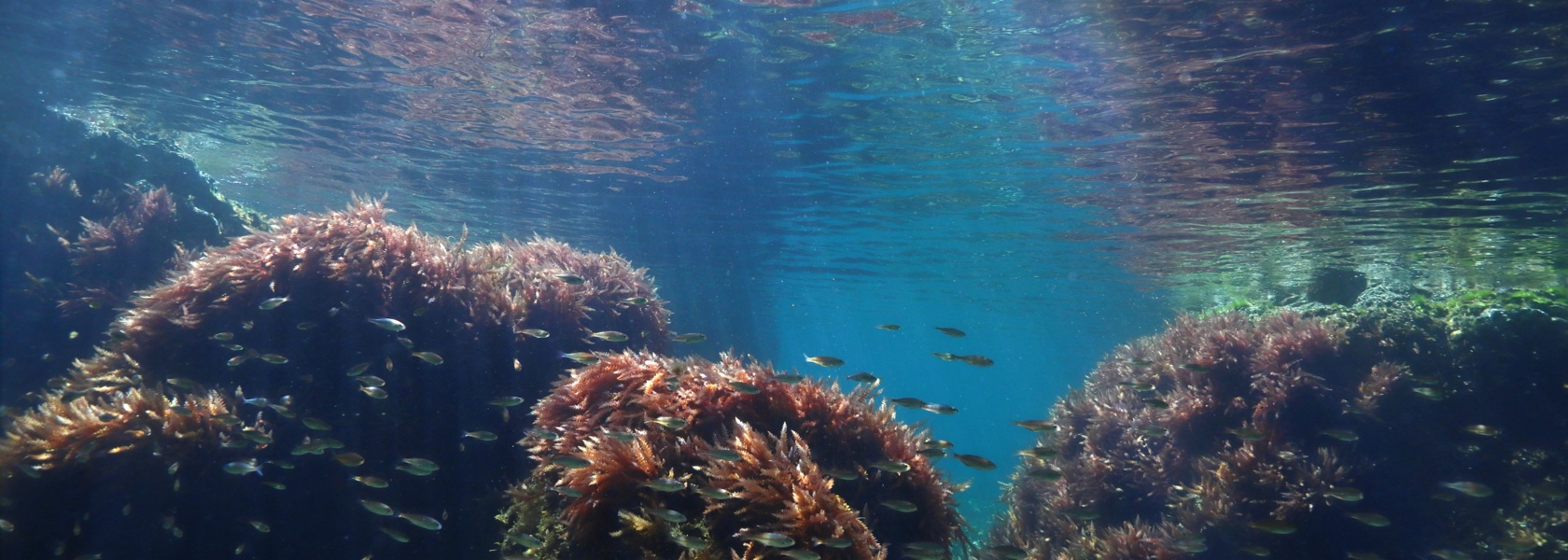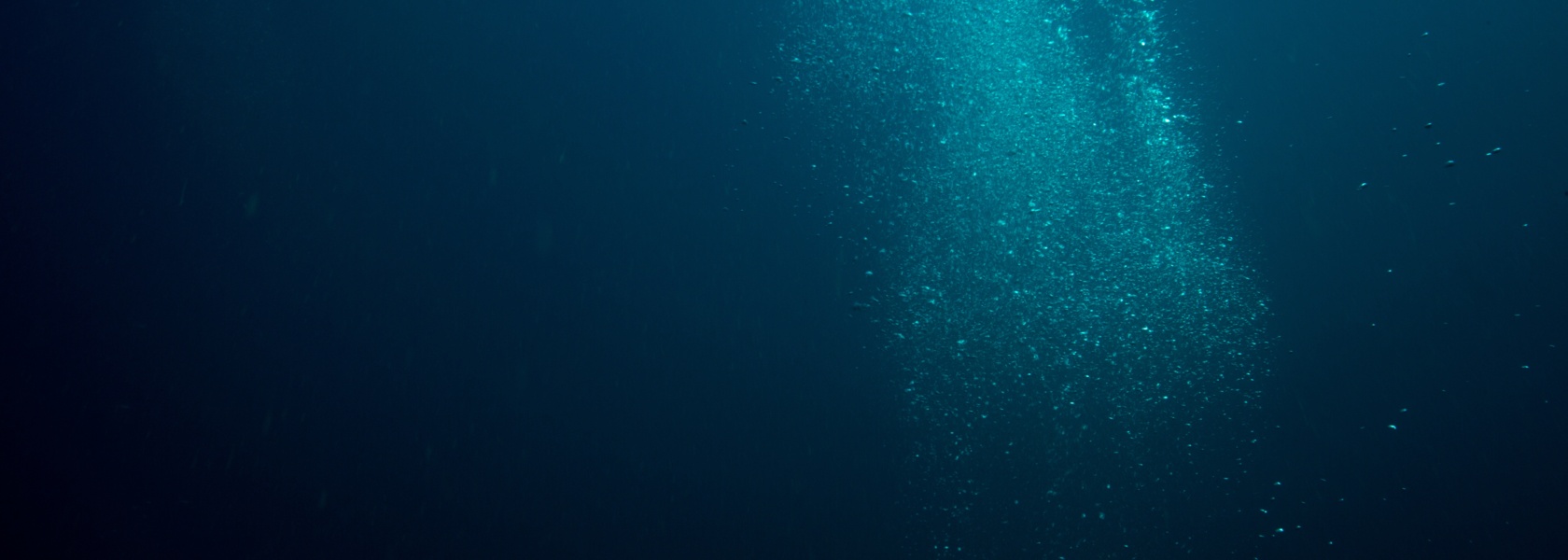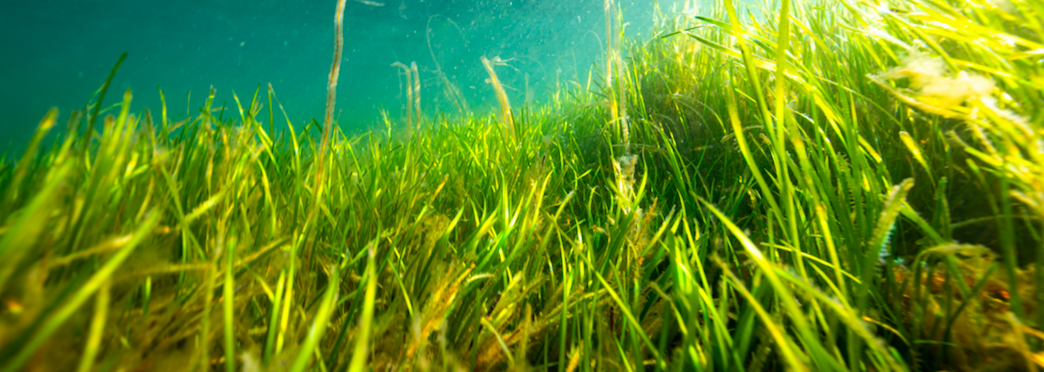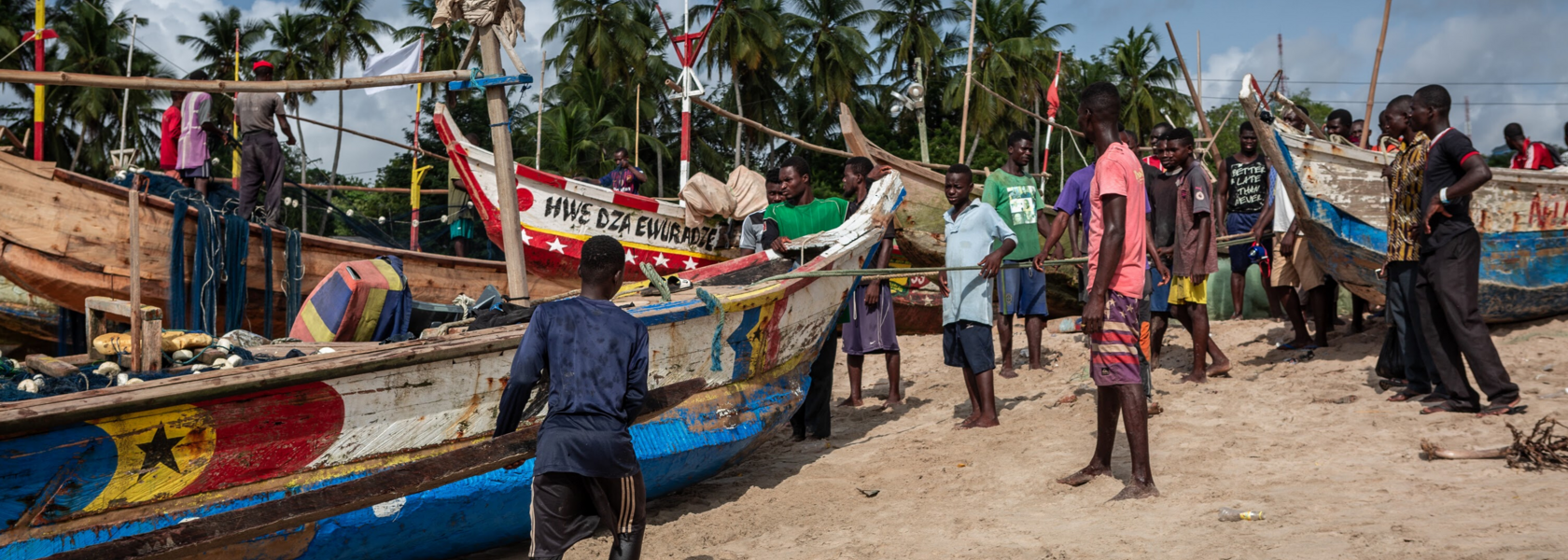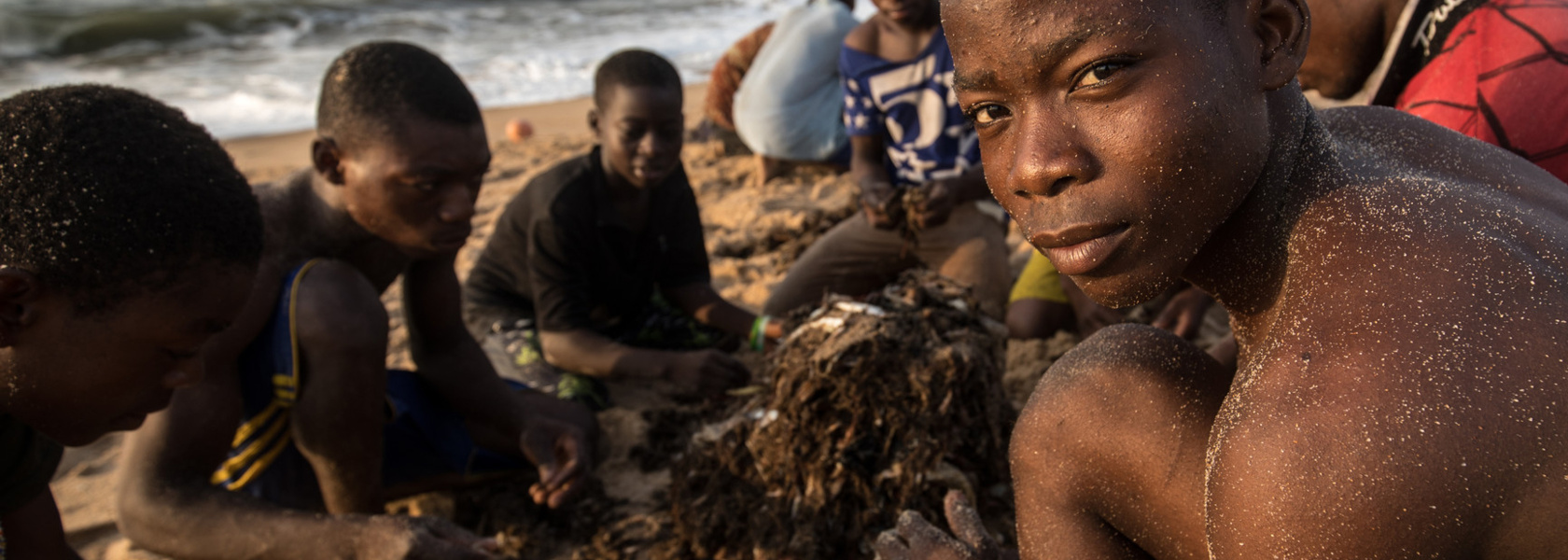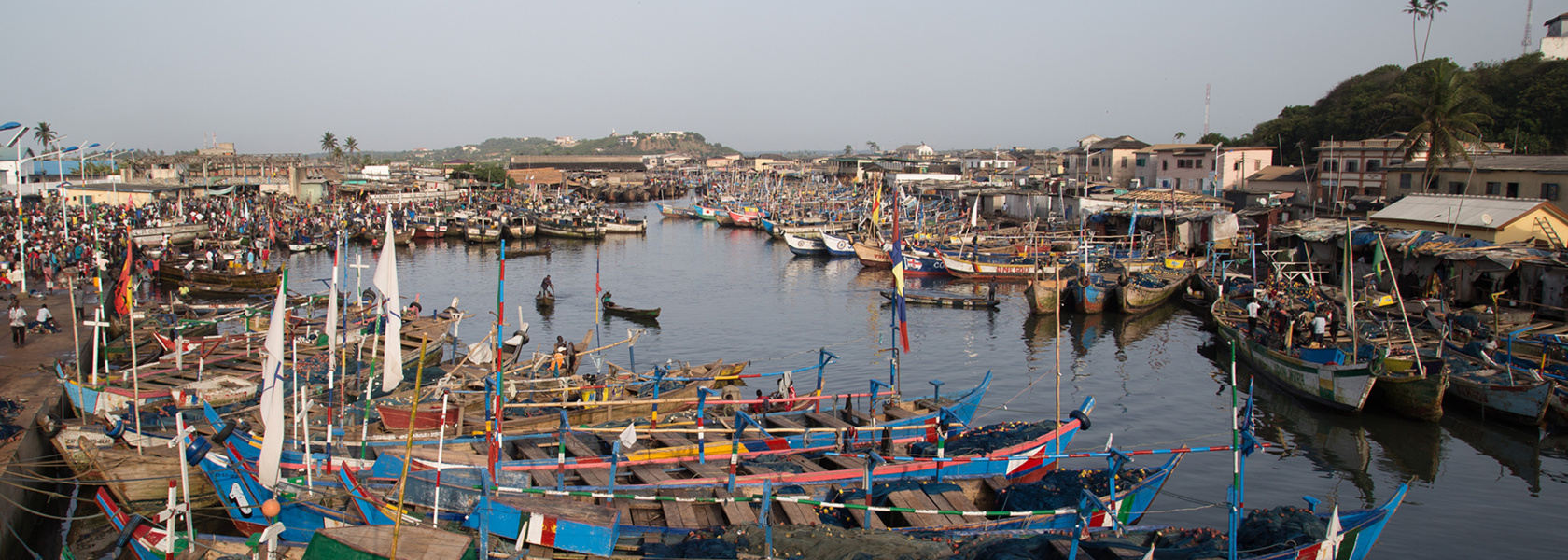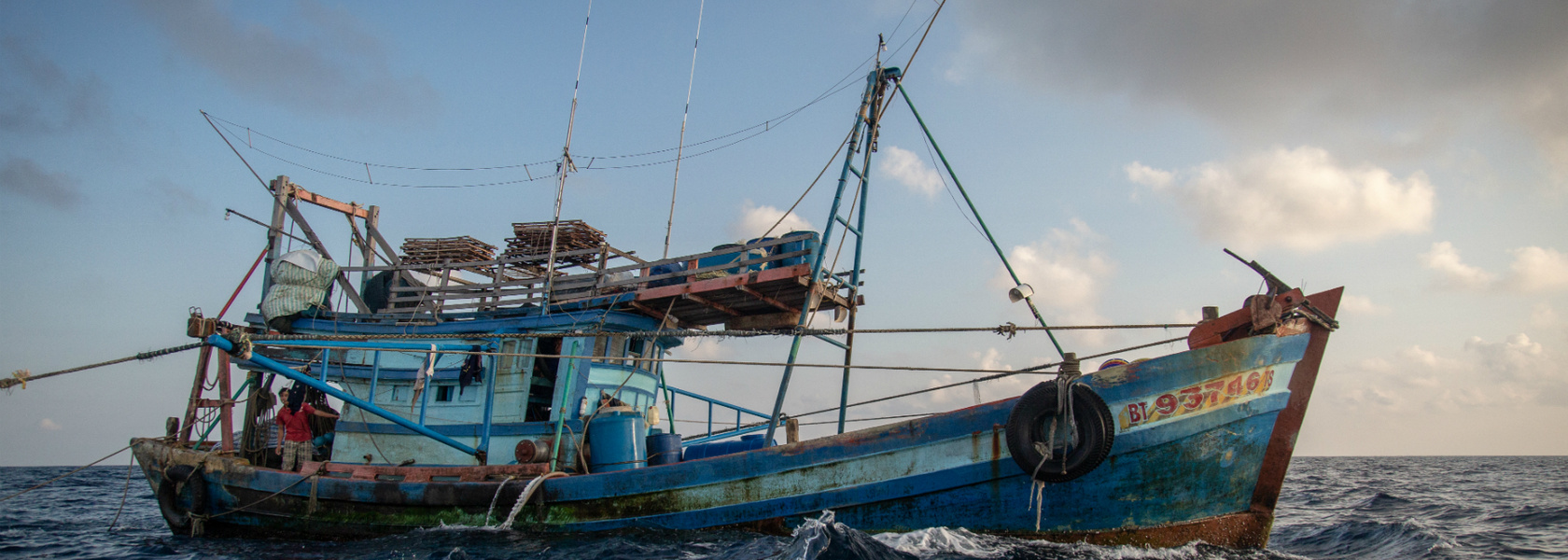Our fish stocks and marine wildlife are in crisis. Rapid industrialisation and poor fisheries management have meant that too many vessels, using destructive and unsustainable fishing methods, have been catching far too many fish. With fish stocks nearing breaking point and global demand at an all-time high, vessels are now going further afield – often fishing illegally in other nations’ territories – and staying longer at sea, to bring back ever-diminishing catches. This has created a wave of trafficked workers forced into slave labour to crew vessels, reduce companies’ costs, and supply the global seafood market with cheap products.
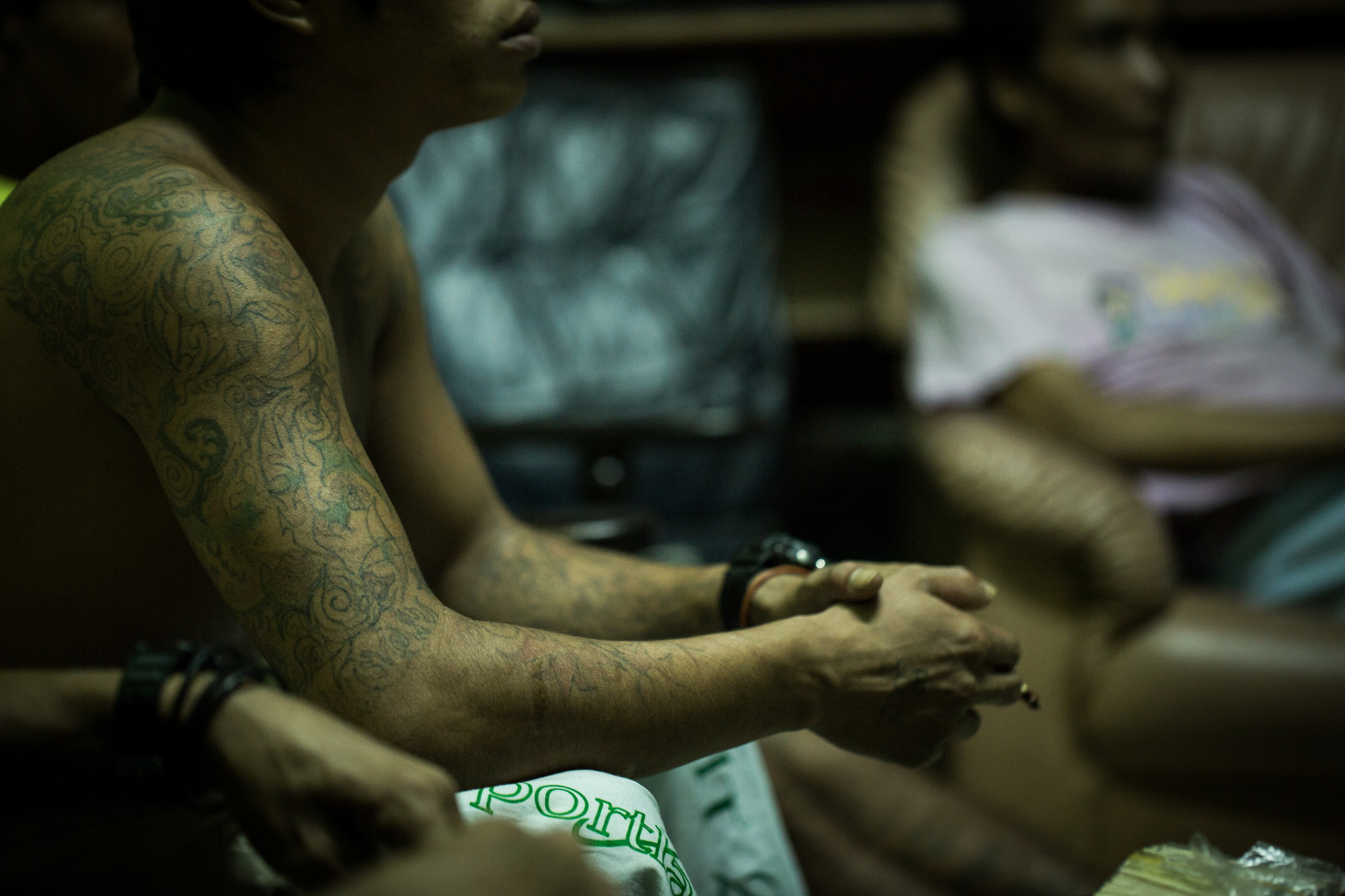
MURDER
59% of trafficked migrants aboard Thai vessels have reported witnessing a murder of a fellow worker
I want to tell [consumers] about our troubles. We sacrificed our blood, sweat and energy. I really would like to let them know about our nightmares
Yu Win, escaped victim of trafficking
Working to end illegal fishing
EJF is working to end illegal fishing and the associated human rights abuses in Thailand’s fisheries, and shine a spotlight on the global problem of slavery at sea.
EJF calls on all countries – port, flag and coastal states – to fully ratify and implement the International Labour Organization’s Convention 188 Work in Fishing, aimed at protecting the rights of workers within the fishing sector.
EJF calls on all countries to address the role of unregulated brokers involved in human trafficking and labour abuses. Countries should work to establish transnational approaches to address the cross-border nature of trafficking or pirate fishing and align national law enforcement and judicial efforts in a bid to stamp these injustices.
EJF calls on all countries to implement legislation to prosecute national citizens engaged in human trafficking on vessels registered to another country, to enact sustainable fisheries policies in line with the FAO and EU specifications and ensure fleet size is in line with scientifically informed sustainable fish yields.
EJF calls on retailers and industry to scrutinise their seafood supply chains for any trace of human rights abuse or illegal fishing. Organisations should collaborate to establish transparency and traceability across their whole supply chain and commit to independent, third-party and unannounced auditing of their supply chains.
They would torture and murder the fishers then throw them into the sea. They abused the crew in many ways - beating, hitting and killing out on the ocean. I witnessed murder with my own eyes.
Tun Thet Soe, escaped victim of trafficking.

Thailand's seafood slaves
Thailand’s seafood sector employs more than 800,000 people. Its exports are valued at over US$5.6 billion annually, making Thailand the world’s third largest exporter of seafood. But this industry is tainted with massive human rights abuses. It is an industry which is propped up by slavery, taking advantage of vulnerable, often migrant, workers. These workers have no rights, no voice and no hope of change.
EJF’s investigations in Thailand’s shrimp industry began in 2012 when we uncovered widespread human trafficking and severe human rights abuses in the industry’s pre-processing facilities. In 2014, we took our work to sea, uncovering the unimaginable brutality faced by migrant workers at the hands of captains or the boat owners' ‘enforcers’. Spending months at sea, these slaves received low or no wages and faced a daily threat of intimidation, violence and even murder.
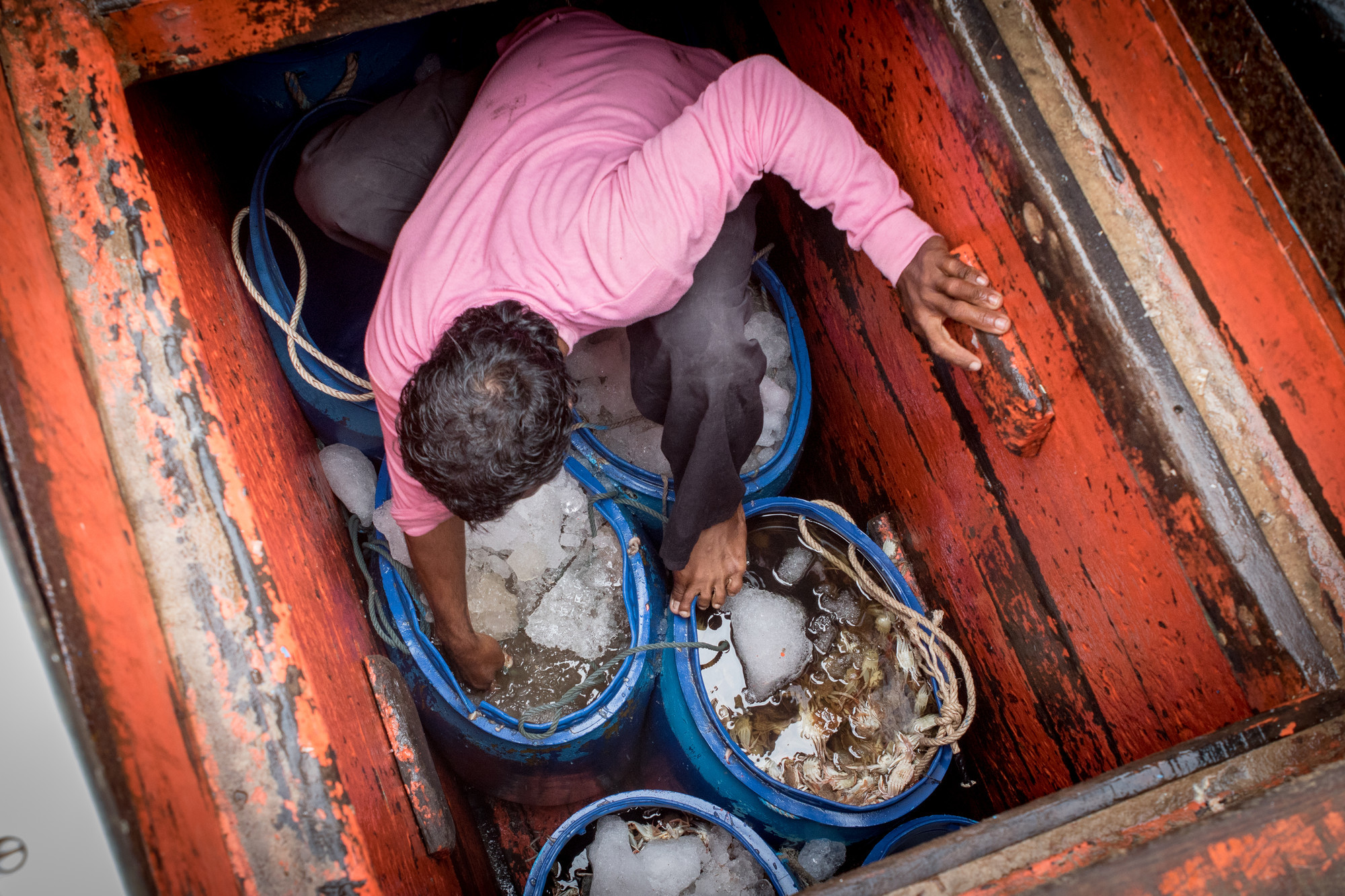
If we hadn’t caught any fish when the nets were pulled up, we were not given any food… If there was a chance before pulling the nets, we might get 15 or 30 minutes rest.
Aung Kyi, escaped victim of trafficking
Our Impact
EJF’s investigations, and award-winning films, Slavery at Sea, Pirates and Slaves and Thailand’s Seafood Slaves shone the global spotlight on these abuses, garnering international media attention, as well as greater scrutiny by businesses and policymakers worldwide.
Our evidence contributed to the US State Department’s decision to place Thailand on Tier 3 in its Trafficking in Person Report across consecutive years, as well as towards the EU’s decision to formally warn Thailand under its illegal fishing regulation. Meanwhile in light of such public attention the Royal Thai Government introduced new legislation to control its fishing fleet, including banning destructive gears, introducing new fines and setting inshore exclusion zones. The nation also became the first in Asia to ratify the international standards for work in the fishing industry.
EJF's continued efforts
We continue to work in Thailand to expose the continued abuses in the country’s seafood sector, supporting the government in its aims to effectively implement and enforce its new legislation, while closing existing gaps. We are also calling on the government to reduce its fleet capacity to relieve the pressure on our over-exploited ocean.
Thailand's seafood sector
Thailand’s seafood sector employs more than 800,000 people. Its exports are valued at over US$5.6 billion annually.
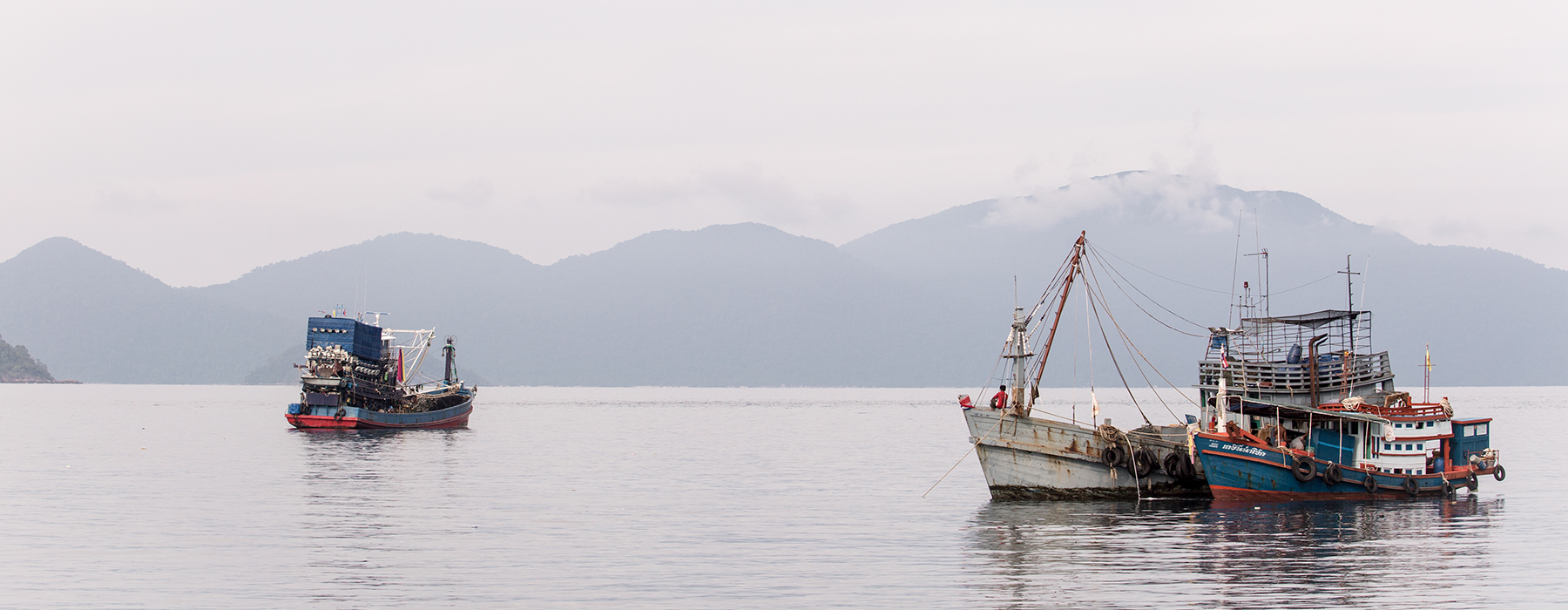
A global fight to eradicate slavery
But slavery and human rights abuses at sea are not a problem limited to Thailand, and EJF continues to work with policymakers and businesses across the world to help uncover and combat these injustices. Our work at sea continues to expand, with investigations taking place in other countries in South-East Asia as well as East Asia; while we have also uncovered labour abuses in Bangladesh’s shrimp industry, advised industry on how to eradicate slavery from supply chains and informed the UK and German governments on issues of modern slavery.
We continue to work to give these vulnerable workers a voice, fight for their rights and combat the overfishing and illegal fishing practices that are fuelling these human rights abuses in the seafood industry.
SIGN UP FOR OUR EMAILS AND STAY UP TO DATE WITH EJF
